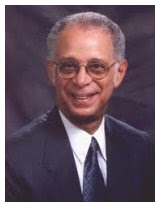We
have created this blog for sharing of photos, comments and reminiscences
on
Norman Girvan.
*******************
UCWI Pelican Annual 1960-61, by Carlyle Dunkley:
*******************
Reflections on Nyak
Michael Witter
April 11, 2014
“Nyak”
is what GBeck called Norman Girvan, and I followed suit in all the years that I
enjoyed his friendship and shared the many projects on which we
collaborated. I had met his ideas on
multinational corporations as mechanisms of underdeveloping the Caribbean and
the wider Third World, in my first attempt at a doctoral thesis on the growth
of multinational corporations. This work
led me to the wider world of dependency economics and structuralist thought on
economic development, and back through the writings of the New World thinkers
of the 1960s in the Caribbean. This was
one path. The other path led me from
George Beckford’s Persistent Poverty back to the same core of critical thinking
that distinguished Norman and the Caribbean scholars of his generation.
Till
the painful imprisonment of his fertile and extremely active mind in the broken
body that led to his untimely passing, Norman was a beacon of scholarship in
the service of the Caribbean people. To
be sure, he was heir to the work of his father, D. T. M. Girvan, and the other
pioneers of community development as a strategy for national development of the
1940s and 1950s in anti-colonial, pre-Independence Jamaica. In addition, he was profoundly influenced by
the remarkable minds of the New World scholars, and their counterparts in Latin
America immediately, and the wider world of radical critique with which he was
always engaged. But, to my certain
knowledge, he brought to those with whom he exchanged ideas, an unshakeable
abhorrence of injustice, an instinct for service to, and respect for, his
fellow human beings, an openness to learning, a mind of exceptional critical
capacities, a boundless energy for disciplined work, commitment to principled
positions that allowed for compromise but never betrayal, and the courage to
stand up to the abuse of authority and power.
In the
last five or so years, Nyak seemed to acquire a new flow of intellectual energy
that he creatively shared through his remarkable web site that became a major
research source for contemporary issues of Caribbean development, especially as
they were shaped by the unfolding of global capitalism through its various
crises. He was one of the few
intellectuals from the Anglo-Caribbean who engaged fully with the rest of the
Caribbean, and particularly the Hispanic Caribbean, on a consistent and
comprehensive basis. I recall being
profoundly moved by the citation and his response in Spanish, at a ceremony in
Havana at which he received one of Cuba’s highest honours. Many were the compliments paid to his
intellectual leadership by English-, Spanish-, French-, and Dutch-speaking
scholars for his leadership of the Association of Caribbean Economists. His leadership as secretary-general of the
Association of Caribbean States and most recently his appointment by the UN secretary-general
to mediate the border disagreements between Venezuela and Guyana are just two
of many instances of international recognition for his intellectual work, his
personal integrity and his leadership.
Even
his critics from both the right and the left who cast slurs on the positions he
took in what he believed was in the interest of the people of the Caribbean,
acknowledged his profound contribution to critical thought in their own back
foremost ways. For some, he was out of
touch with the narrowing concerns of mainstream economics, and for others, he
was propagating out-dated radical nationalism.
Both views had to engage his intellectual campaigns, and in so doing,
recognize the import of his ideas.
Nyak
has left a body of work that will support research for many years to come. Too few of his students have become academic
partisans like him in the cause of social and economic development for the
Caribbean people, but these few will live the values of critical thought, courage,
and social justice that he espoused. The
older ones of us will give thanks to Norman, each in his or her own way. But, it is the younger ones who will stand on
his shoulders, and see further, that will keep his memory alive in the academic
journals and the popular mind.
There
are two projects that the older and the younger generations can collaborate in
to give Norman a sense of intellectual closure.
He wanted a critical review of the struggles over development policy in
Jamaica in the 1970s, properly situated in the global context, the history of
the Caribbean, and the class struggles of Jamaica. And he wanted the volumes of the New World
Journal to be re-published for the benefit of the young. Academics can honour his memory with these
two publications.
*******************


